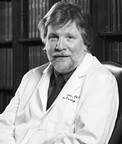Latest News
Research & Innovation
New drug enhances radiation treatment for brain cancer in preclinical studies
May 14, 2013

Recently published in the journal Clinical Cancer Research, the study provides the first preclinical evidence demonstrating that an ATM kinase inhibitor radiosensitizes gliomas. Gliomas are brain tumors that originate from glial cells, which provide support for nerve cells and help regulate the internal environment of the brain. ATM, or ataxia telangiectasia mutated, is an enzyme that helps repair DNA damage. The scientists used an experimental drug, KU-60019, to block the activation of ATM, which led to the enhanced destruction of the gliomas due to their reduced ability to repair the DNA damage caused by the radiation treatment. The new approach was particularly effective against gliomas that have a mutation in the p53 tumor suppressor gene, which accounts for approximately 30 percent of all glioma cases.
Massey Cancer Center.“Sadly, the average life expectancy of patients diagnosed with glioblastoma is just 12 to 15 months,” says the study’s lead researcher Kristoffer Valerie, Ph.D., co-leader of the research program and a professor in the Department of Radiation Oncology at VCU Massey Cancer Center. “By limiting the tumor’s ability to combat DNA damage caused by treatments such as radiation, we are hopeful that we can enhance our ability to specifically target the glioma, prolong survival and reduce damage to surrounding brain tissue.”
Valerie collaborated on this study with Sumitra Deb, Ph.D., a member of the Cancer Molecular Genetics research program at VCU Massey Cancer Center and professor in the Department of Biochemistry and Molecular Biology at VCU School of Medicine; Nitai D. Mukhopadhyay, M.Stat., Ph.D., a member of the Radiation Biology and Oncology research program at VCU Massey and assistant professor in the Department of Biostatistics at VCU School of Medicine; Laura Biddlestone-Thorpe, Muhammad Sajjad, Elizabeth Rosenberg, Jason M. Beckta, Nicholas C.K. Valerie, Mary Tokarz, Bret R. Adams, Alison F Wagner, Ashraf Khalil, Donna Gilfor and Sarah E. Golding, all from the Department of Radiation Oncology at VCU School of Medicine; David G. Temesi, Ph.D., Alan Lau, Ph.D., and Mark J. O’Connor, Ph.D., all from AstraZeneca; and Kevin S Choe, M.D., Ph.D., Luis F. Parada, Ph.D., and Sang Kyun Lim, Ph.D., all from the University of Texas Southwestern.
The full manuscript of this study is available online here.
Written by:
Related News
Research & Innovation
Novel therapy using engineered immune cells to kill prostate cancer earns $1.8 million Department of Defense grantJan 20, 2026
Research & Innovation
VCU Massey now offers new technology for early detection of lymphedemaDec 8, 2025

Get access to new, innovative care
Treatments in clinical trials may be more effective or have fewer side effects than the treatments that are currently available. With more than 200 studies for multiple types of cancers and cancer prevention, Massey supports a wide array of clinical trials.

Find a provider
Massey supports hundreds of top cancer specialists serving the needs of our patients. Massey’s medical team provides a wealth of expertise in cancer diagnosis, treatment, prevention and symptom management.

 “If these findings hold up in early phase clinical trials, we expect patients with p53 mutant gliomas to respond well to this treatment while showing few side effects. Also, we anticipate that this same treatment strategy could be effective for other cancers that are treated with DNA-damaging chemotherapies,” says Valerie. “We are encouraged by these early findings and will continue to move forward with our research. However, more studies are needed before we can proceed with testing this new therapy in humans.”
“If these findings hold up in early phase clinical trials, we expect patients with p53 mutant gliomas to respond well to this treatment while showing few side effects. Also, we anticipate that this same treatment strategy could be effective for other cancers that are treated with DNA-damaging chemotherapies,” says Valerie. “We are encouraged by these early findings and will continue to move forward with our research. However, more studies are needed before we can proceed with testing this new therapy in humans.”